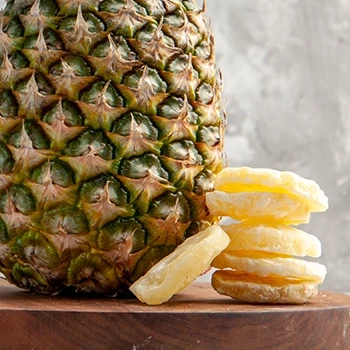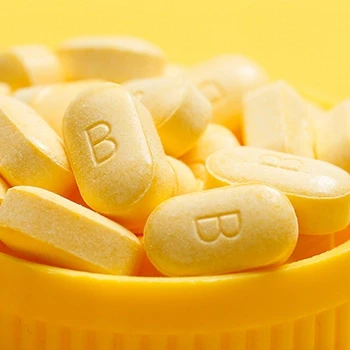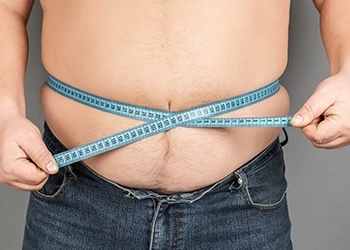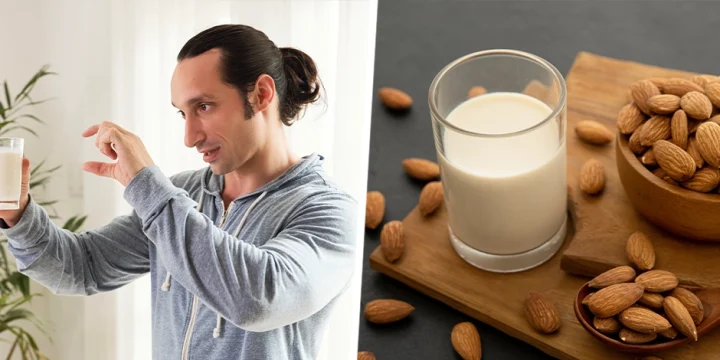As a long-term fitness trainer, I've seen many people using supplements to boost their testosterone levels.
But recently, a few of my clients have inquired if taking pineapples can provide the same benefits.
So, I spent hours researching the benefits of pineapple and then conducted a personal trial overseen by my dietitian to see if it could increase testosterone levels.
Keep on reading to find out everything I learned.
Quick Summary
- Pineapples contain essential nutrients, like magnesium and zinc, that boost testosterone levels.
- Taking pineapples can also improve testicular functions by increasing blood flow to the testicles.
- A PubMed study on cyclists found that bromelain supplementation (1000 mg·day(-1)) might help maintain testosterone levels during intense activities, with a trend observed for bromelain to maintain testosterone concentrations across the race period (P = 0.05, d = 1.04-1.70).
- While pineapple is beneficial for testosterone, I always advise my clients to consume it in moderation to avoid potential side effects, balancing it with other natural testosterone sources.
Does Pineapple Increase Testosterone?

Yes, pineapple increases testosterone levels by containing a compound called bromelain that improves testosterone synthesis [1]. A PubMed study on cyclists found that bromelain supplementation (1000 mg·day(-1)) might help maintain testosterone levels during intense activities, with a trend observed for bromelain to maintain testosterone concentrations across the race period (P = 0.05, d = 1.04-1.70).
In addition, pineapple is rich in magnesium and zinc, nutrients necessary for testosterone production.
Effects of Bromelain on Testosterone
Bromelain in pineapples reduces exercise-induced muscle pain due to its anti-inflammatory properties.
Moreover, studies from the National Library of Medicine have shown that bromelain may help sustain testosterone levels that have been elevated during exercise for some time [2].
Effects of Magnesium and Zinc on Testosterone

Aside from bromelain, pineapples are foods that boost testosterone because they contain high magnesium and zinc.
Both of these components have been demonstrated to boost mood.
This is critical for anyone who has erectile dysfunction (ED).
ED episodes can trigger the release of cortisol, also known as the stress hormone.
The more cortisol in the bloodstream, the less testosterone the body produces [3]. Pineapples, with 82 calories and 22 grams of carbohydrates per cup, contain essential nutrients like magnesium and zinc that are known to boost testosterone levels.
"One study researched the effects of a magnesium and zinc supplement. It found that men who received 30 milligrams of zinc per day showed increased levels of free testosterone in their bodies."
- Alana Biggers, M.D., MPH, ABMS Board Certified Internal Medicine Physician
Pineapple Nutrients That Boost Testosterone
Various nutrients in pineapple can help men boost their testosterone levels naturally and improve sexual function.
Let's have a look at each of them.
Manganese

Manganese is the most significant component in pineapple that has been linked to men's sexual health. One cup of fresh pineapple contains approximately 76% of the daily manganese requirement [4].
This vitamin has been linked to increased sexual strength. Furthermore, it has been shown to increase testosterone levels, making it especially advantageous to a man's libido and sexual function.
According to a study, a manganese shortage in male volunteers produced a loss of sexual drive and a lowered sperm count in lab trials [5].
Vitamin C
Vitamin C has a relatively significant effect on testosterone production. It promotes spermatogenesis and lowers the likelihood of sperm clumping. That said, vitamin C may be obtained through citrus fruits like pineapple.
Not eating such fruits may lead to a vitamin C deficiency, which might cause low testosterone levels [6].
Vitamin C, in addition to increasing testosterone levels, can benefit cardiovascular health and cellular function. This is important because improved blood flow may help you sustain sexual desire.
Vitamin B

Pineapple contains three B-group vitamins that are very useful to men: vitamin B1 (thiamine), vitamin B2 (riboflavin), and vitamin B3 (niacin).
Thiamine is crucial for promoting the synthesis of sex hormones. Hence a lack of it causes infertility and poor testicular function leading to low testosterone levels.
In addition, riboflavin levels must be adequate for the proper nerve impulse transmission, which is important for erection. Moreover, niacin maintains healthy veins and arteries and regulates the functioning of the neurological system [7].
That said, regularly eating pineapples will increase the B vitamins in your system, ensuring healthy blood vessels and circulation to your testicles. This may improve testicular function and increase testosterone production.
Other Useful Benefits of Eating Pineapple

In my journey to improve health and fitness, I've found that adding pineapple to my diet has benefits beyond just boosting testosterone.
Not only did I notice an improvement in my energy levels, but I also experienced a positive impact on my weight management. Pineapple became a key part of my balanced diet, contributing to my overall well-being and supporting my fitness goals.
Improved Fertility
Pineapples are high in antioxidants due to their richness in phenolic and flavonoid acids, which is another advantage related to sexual health. This is important because antioxidants protect your body from free radicals.
Studies have demonstrated that they increase sex hormone levels and reproductive chances, prevent various age-related illnesses, and maintain a healthy immune function [8].
Weight Loss

A 2018 research from the National Library of Medicine suggests pineapple juice may reduce fat production and increase fat breakdown, making it a low-calorie, nutrient-rich snack, high in vitamins that increase testosterone levels [9].
"There's no one vegetable or fruit that induces weight reduction directly, but they will help you feel full without adding calories."
- Julie Andrews, Registered Dietitian Nutritionist
I noticed that I felt satiated for longer when I drank pineapple juice or ate the fruit. As a result, it lowered my food intake and decreased my appetite and cravings.
Comparison with Other Natural Testosterone Boosters
Pineapple stands out among other natural testosterone boosters.
But how does it compare against other natural options?
- Pineapple vs pomegranate: While pomegranate is known for improving sperm quality and increasing testosterone levels, pineapple offers bromelain, which not only aids in hormonal production but also improves muscle recovery and reduces inflammation.
- Pineapple vs ginger: Ginger can increase testosterone and enhance male fertility, but pineapple, besides its effects on testosterone, provides additional benefits for digestive health and inflammation reduction.
- Pineapple vs ashwagandha: Ashwagandha effectively reduces stress and increases testosterone levels, especially in men with chronic stress. Conversely, pineapple offers a more holistic approach, supporting hormonal, muscle recovery, and cardiovascular health.
FAQs
What Does Pineapple Do for a Male?
Pineapple increases a male's sex drive as it contains bromelain, an enzyme that triggers testosterone production.
Does Pineapple Increase Erection?
Yes, pineapple increases erection because it contains nutrients such as vitamin C that improve blood flow to the genitalia.
Does Pineapple Make You Last Longer in Bed?
Yes, pineapple makes you last longer in bed, as it is abundant in thiamine and vitamin C, which increases your stamina and provides energy.
References:
- https://pubmed.ncbi.nlm.nih.gov/25604346/
- https://www.ncbi.nlm.nih.gov/pmc/articles/PMC4998156/
- https://www.webmd.com/food-recipes/benefits-pineapple
- https://www.researchgate.net/publication/351450967_Pineapple_Ananas_comosus_L_Merr
- https://www.ncbi.nlm.nih.gov/pmc/articles/PMC8625354/
- https://www.ncbi.nlm.nih.gov/pmc/articles/PMC4149087/
- https://www.ncbi.nlm.nih.gov/pmc/articles/PMC8839250/
- https://www.ncbi.nlm.nih.gov/pmc/articles/PMC3249911/
- https://www.ncbi.nlm.nih.gov/pmc/articles/PMC8028712/
About The Author
You May Also Like






